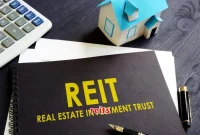Looking to diversify your investment portfolio and tap into the lucrative real estate market without the hassle of buying a home? Real estate crowdfunding presents a unique and accessible opportunity for investors of all levels to gain exposure to the world of property. This innovative approach allows you to pool your funds with other investors to acquire and develop properties, potentially generating passive income and capital appreciation.
Gone are the days of needing a hefty down payment and mountains of paperwork to get involved in real estate. With real estate crowdfunding, you can start investing with as little as a few hundred dollars, allowing you to participate in projects that might have been out of reach otherwise. Whether you’re a seasoned investor or just starting, this guide will provide a comprehensive overview of real estate crowdfunding, explaining the different types, key benefits, and how to get started on your journey towards a diversified and potentially profitable real estate portfolio.
What is Real Estate Crowdfunding?
Real estate crowdfunding is a way to invest in property without having to buy a whole building or even a single unit. Instead, you can pool your money with other investors to buy a piece of a larger property or development. This is done through online platforms that connect investors with developers seeking funding.
Essentially, real estate crowdfunding is similar to traditional crowdfunding, but for real estate projects. Think of it as a way to buy shares in a property rather than owning the entire thing. This allows for fractional ownership and access to projects you might not be able to invest in otherwise.
There are two main types of real estate crowdfunding:
- Equity crowdfunding: This allows investors to purchase a share of the property itself. They receive a portion of the rental income and any profit when the property is sold.
- Debt crowdfunding: This allows investors to loan money to developers, who then use the funds to build or renovate a property. The investors earn interest on their loan over time.
Real estate crowdfunding offers a potentially lucrative way to diversify your investment portfolio and gain exposure to real estate without the high costs and headaches associated with traditional property ownership.
The Benefits of Real Estate Crowdfunding
Real estate crowdfunding is a relatively new form of investing that allows individuals to invest in commercial and residential real estate projects with relatively small amounts of capital. These projects are typically funded through a variety of platforms, many of which operate online and connect investors with real estate developers.
If you are considering dipping your toes into the world of real estate investing, real estate crowdfunding can be a viable and accessible option. Here are some of the key benefits it offers to individual investors:
Lower Investment Minimums: In traditional real estate investing, large sums of capital are required to purchase a property. Real estate crowdfunding allows investors to participate with as little as $100-$1000, making it more accessible to a wider range of individuals.
Diversification: Real estate crowdfunding provides a way to diversify your investment portfolio by investing in a range of projects across different geographies and asset classes. This diversification can help to mitigate risk and potentially generate more stable returns over time.
Passive Income Potential: Real estate crowdfunding allows investors to participate in real estate projects without the hassle of managing properties themselves. Instead, investors can receive regular income in the form of interest payments or profit distributions from the projects they fund.
Professional Management: Real estate crowdfunding platforms typically work with experienced developers and property managers, who handle all aspects of the project, including acquiring, developing, and managing the properties. This means that investors can benefit from professional expertise without having to actively manage the investments themselves.
Access to Exclusive Deals: Real estate crowdfunding platforms often offer investors access to exclusive deals that may not be available to individual investors through traditional means. This can provide investors with the opportunity to participate in high-quality projects that offer strong returns.
While there are benefits to real estate crowdfunding, it is important to be aware of the potential risks before investing. These risks may include the possibility of losing your entire investment, illiquidity, and potential fraud. It is crucial to research platforms, developers, and projects thoroughly and to only invest what you can afford to lose.
How to Choose the Right Crowdfunding Platform
Real estate crowdfunding has gained popularity as a way to invest in property without the hassle of purchasing a home. However, with so many platforms available, choosing the right one can be overwhelming. Here are some key factors to consider when selecting a real estate crowdfunding platform:
Investment Minimums and Fees:
Determine the minimum investment amount required and the fees associated with the platform. Some platforms may have high minimums that are not suitable for all investors. Consider the fees charged, including platform fees, management fees, and exit fees.
Investment Options:
Explore the different investment options offered by the platform. Some platforms specialize in specific property types, such as commercial or residential, while others provide a broader range of investment opportunities. Choose a platform that aligns with your investment goals and risk tolerance.
Track Record and Reputation:
Research the platform’s track record and reputation. Check online reviews and industry reports to assess the platform’s performance, transparency, and customer satisfaction. Look for platforms with a proven track record of success and a strong reputation within the real estate crowdfunding industry.
Due Diligence and Transparency:
Ensure the platform offers adequate due diligence and transparency on the investment opportunities. Look for platforms that provide detailed information about the projects, including financial statements, risk assessments, and exit strategies. Transparent platforms will be upfront about their fees and investment process.
Customer Support and Resources:
Evaluate the platform’s customer support and resources. A reputable platform will offer responsive customer support channels and provide access to educational materials and resources to help investors understand the process.
By carefully considering these factors, investors can increase their chances of finding the right real estate crowdfunding platform for their investment goals.
Understanding the Risks of Real Estate Crowdfunding
Real estate crowdfunding offers an exciting opportunity to invest in property without needing to buy a home. However, like any investment, it’s crucial to understand the associated risks before jumping in. While the potential for attractive returns is enticing, investors need to be aware of the possible downsides.
One significant risk is liquidity. Unlike traditional investments like stocks or bonds, real estate investments can be difficult to sell quickly. This illiquidity means investors may have to hold their investments for extended periods, limiting access to their funds if needed.
Another risk is lack of diversification. Real estate crowdfunding often involves investing in a single property, increasing the potential for loss if the project fails. Diversifying your investment portfolio across different assets can help mitigate this risk.
Developer risk is another factor to consider. The success of a real estate crowdfunding project depends on the developer’s expertise and ability to execute the project. Investors need to research the developer’s track record and experience before investing.
Additionally, regulatory uncertainty can pose a risk. Regulations governing real estate crowdfunding are still evolving, and changes could impact the investment landscape.
It’s important to remember that real estate crowdfunding investments typically involve long-term commitments. Returns may not be realized immediately, and investors need to be comfortable with the potential for volatility and market fluctuations.
Before investing in real estate crowdfunding, conduct thorough research, understand your risk tolerance, and consult with a financial advisor. Proper due diligence and a comprehensive understanding of the risks involved can help investors make informed decisions and maximize their potential returns.
How to Diversify Your Real Estate Portfolio with Crowdfunding
Real estate crowdfunding is a popular way to invest in property without buying a home. It allows you to invest in a variety of projects, such as apartment buildings, commercial properties, and even land, with as little as $500. This diversification can help you reduce your risk and increase your returns.
Here are a few tips for diversifying your real estate portfolio with crowdfunding:
- Invest in different asset classes. Don’t put all your eggs in one basket. Instead, invest in a mix of residential, commercial, and industrial properties. This will help you reduce your risk and increase your chances of earning a positive return.
- Invest in different geographic locations. Diversifying geographically can help you reduce your risk even further. For example, you could invest in properties in different states or even countries. This will help you avoid being overly exposed to the economic conditions of any one area.
- Invest in different stages of development. You can invest in properties that are already built and generating income, or you can invest in properties that are still under development. This will give you exposure to different risk profiles and return potential.
By diversifying your real estate portfolio with crowdfunding, you can enjoy the benefits of real estate investing without having to buy a home.
The Role of REITs in Crowdfunding
Real estate investment trusts (REITs) play a significant role in real estate crowdfunding. REITs are companies that own and operate income-producing real estate. They are publicly traded on stock exchanges, allowing investors to buy and sell shares like any other stock.
In the context of crowdfunding, REITs are often used as a way to diversify investments. Crowdfunding platforms allow investors to pool their money together and invest in a portfolio of REITs, rather than just one individual property. This diversification helps to reduce risk and increase potential returns.
REITs can also provide investors with access to commercial real estate, which is often difficult to invest in directly. Crowdfunding platforms can make this investment opportunity more accessible to a wider range of investors.
Common Mistakes to Avoid in Real Estate Crowdfunding
Real estate crowdfunding allows individuals to invest in properties without having to purchase them outright. This can be a great way to diversify your portfolio and earn passive income. However, it’s important to be aware of the potential pitfalls before you invest. Here are some common mistakes to avoid:
Not doing your research: Before you invest in any crowdfunding campaign, it’s important to do your due diligence. This includes reading the offering documents carefully, understanding the risks involved, and evaluating the track record of the sponsor. Don’t just invest because you are excited about the prospect of making money quickly.
Investing in projects you don’t understand: One of the biggest mistakes investors make is investing in projects that they don’t fully understand. If you don’t understand how the project will generate returns, you shouldn’t invest. Seek projects that align with your risk tolerance and investment goals.
Not diversifying your investments: Don’t put all your eggs in one basket. It’s important to diversify your investments across multiple crowdfunding platforms and projects. This will help to reduce your risk if one project doesn’t perform as well as expected.
Not considering the exit strategy: Before you invest, it’s important to consider how you’ll exit your investment. This could involve selling your shares, receiving a distribution from the project, or holding on to your investment for the long term. You should be aware of the exit strategy and ensure it fits with your investment goals.
Ignoring the fees: Crowdfunding platforms typically charge fees for investors. Be sure to factor these fees into your investment analysis. You should be aware of all the fees associated with the investment before you commit your capital.
How to Maximize Returns in Real Estate Crowdfunding
Real estate crowdfunding provides an exciting opportunity to invest in properties without the complexities of traditional homeownership. While the potential returns can be attractive, maximizing your profits requires a strategic approach. Here are key strategies to enhance your returns in real estate crowdfunding:
Diversify Your Investments: Avoid putting all your eggs in one basket. Spread your investments across various projects, locations, and property types. Diversification mitigates risk and potentially boosts overall returns.
Thorough Due Diligence: Before investing, carefully evaluate the project details, developer’s track record, and market conditions. Understanding the risks and potential returns is crucial for informed decision-making.
Target High-Growth Markets: Research markets with strong economic fundamentals, increasing population growth, and limited housing supply. These factors contribute to higher property value appreciation and rental income.
Consider Project Type: Different project types offer varied risk and return profiles. Residential projects are generally less volatile, while commercial projects might yield higher returns but carry greater risk.
Long-Term Perspective: Real estate investments typically involve a longer investment horizon. Patience and a long-term perspective can maximize your returns, especially as property values appreciate over time.
Professional Guidance: If you’re new to real estate crowdfunding, consider consulting with a financial advisor or real estate professional. Their expertise can guide you through the investment process and help you make informed decisions.
The Future of Real Estate Crowdfunding
Real estate crowdfunding has emerged as a transformative force in the investment landscape, offering individuals the opportunity to participate in lucrative real estate projects without the hefty price tag of traditional homeownership. As the sector continues to evolve, several trends point to a bright future for real estate crowdfunding, poised to become an even more accessible and attractive avenue for investors.
One key driver of growth is the increasing adoption of technology. Platforms are becoming more sophisticated, streamlining the investment process and providing investors with greater transparency and control. From online due diligence tools to automated portfolio management, technology is simplifying the complexities of real estate investing, making it more user-friendly for a wider audience.
Moreover, the rise of alternative investments is fueling the popularity of real estate crowdfunding. As investors seek diversification beyond traditional asset classes, real estate crowdfunding offers an attractive option, particularly for those seeking exposure to the resilient and often undervalued real estate market.
Looking ahead, we can expect to see further innovation in the real estate crowdfunding space. The emergence of new investment models, such as fractional ownership and equity crowdfunding, will expand the range of investment opportunities available to investors. Furthermore, the sector is likely to witness increased regulatory clarity and standardization, fostering greater confidence and trust among investors.
In conclusion, the future of real estate crowdfunding appears promising, fueled by technological advancements, evolving investor preferences, and a growing demand for alternative investment options. As the sector matures, real estate crowdfunding is poised to play an increasingly significant role in democratizing access to the lucrative real estate market, empowering individuals to participate in a previously exclusive arena.
Tips for Getting Started in Real Estate Crowdfunding
Real estate crowdfunding allows investors to participate in the purchase of real estate properties without needing to buy a whole property. This can be a great way to diversify your investment portfolio and gain exposure to the real estate market. But how can you get started in real estate crowdfunding?
Here are some tips for getting started:
- Do your research: Before investing in any real estate crowdfunding platform, it is crucial to research and understand the platform’s fees, investment terms, and track record. Look for platforms with a strong reputation and a history of successful projects.
- Start small: Don’t invest more than you can afford to lose. It’s advisable to start with smaller investments and gradually increase your investment amount as you gain more experience and confidence.
- Diversify your investments: Don’t put all your eggs in one basket. Invest in a variety of projects across different asset classes and geographic locations to reduce your risk.
- Monitor your investments: Keep track of your investments and stay informed about the performance of the projects you’ve invested in. This will help you make informed decisions about your investments.
By following these tips, you can increase your chances of success in real estate crowdfunding. Remember that real estate crowdfunding is not a get-rich-quick scheme. It’s important to approach it with a long-term perspective and be prepared to ride out market fluctuations.




